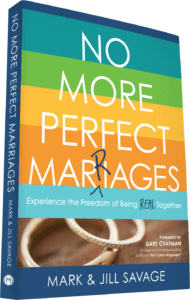 Once we get married, it’s important that we continue to grow emotionally, as that will strengthen our ability to relate to our partner. Today’s #MarriageMonday is about evaluating your past in order to have a great future.
Once we get married, it’s important that we continue to grow emotionally, as that will strengthen our ability to relate to our partner. Today’s #MarriageMonday is about evaluating your past in order to have a great future.
Mark: Have you ever done an internship in your life? Towards the end of my time pursuing a Pastoral Degree at Lincoln Christian College (now University), I was a Community Outreach Intern at Eastview Christian Church. I’ll never forget a lot of the lessons I learned during that time, including volunteer management, event planning, and the importance of meeting deadlines. I carried a lot of those lessons with me in my years as a pastor.
Jill: While it wasn’t called an internship, I learned a lot during my student teaching years at Brownsburg High School as well, back in 1986. (Let’s just pretend that wasn’t almost 40 years ago!) From how to manage a class to lesson planning to interpersonal dynamics, this experience was a huge part in shaping my teaching style. Little did I know that God had different plans for my life than teaching music! (Although I do still love the occasional piano or voice lesson I get to do with my grandkids.)
Mark: Why are we talking about internships? Well, Jill and I have coined a term for the homes we grew up in. We call it our “home internship,” where we learned about communication, conflict, God, marriage, roles of men and women, sex, and so much more. Our “growing up” experience, or “home internship,” is comprised of what our family taught us—directly or indirectly—as well as the choices we made independently of the family. These provide a filter for how we view our relationships.
Jill: The reason it is valuable to evaluate our past is to assess whether our home internship served us well or whether there is a need to do a new home internship in some areas.
Mark: For instance, one spouse may have come from a home where conflict was handled with rage. The other spouse may have come from a home where they pretended there was no conflict. Neither are healthy. So both partners might consider the value of doing a “new internship” in conflict management.
Jill: A new internship might be pursued by reading books on the subject, pursuing the counsel of a more mature couple or a pastor, attending a marriage retreat, or seeking the help of a marriage counselor.
Mark: Jill and I have used all of the above resources to pursue some of the new internships we’ve needed to rid ourselves of baggage from our past that wasn’t serving us well in marriage. It requires a willingness on our part to pursue the new internship, but we’ve found that the more emotionally healthy we are, the stronger our relationship is.
Jill: If you’ve never evaluated your past before, take a few moments to think about these things:
- Communication
- Conflict
- View of God
- Marriage
- Role of Men and Women
- Sex
- Insecurity
- Negative self-talk
- Critical Spirit
- Addictions
Do you find that you consistently have trouble in any of the above areas in your marriage? What was modeled for you in the home where you grew up? What was spoken or unspoken concerning these issues? Would it be valuable for you to do a new internship in any of these topics?
Mark: Evaluating your past is not something we do to “blame” our parents or even “blame” ourselves for choices we made before marriage. Instead it is to help us understand our views and perspectives on issues that affect our marriage and to evaluate whether those perspectives are helping or hurting our marriage.
Jill: Ultimately, this all comes down to emotional health. Here is something Mark and I have been reflecting on a lot lately: The marriage relationship is directly affected by the emotional health of each partner. If I am approaching conflict with a desire to be passive because I don’t have the tools to navigate conflict in a healthy way, then I have some growing to do in my emotional health.
Mark: If I am approaching conflict with a desire to be loud or to communicate aggressively because I don’t have the tools to navigate that conflict in a healthy way either, then I also have some growing to do in my emotional health.
Jill: Those are just examples, but the reality is that both of those approaches to conflict are things we learned during our respective “home internships.” Let me tell you: It is so easy to just assume that what you learned in your home is normal, and to avoid looking at what you learned critically. However, the key to becoming emotionally healthy is recognizing and being honest about where you need to grow.
Mark: Today, our encouragement is simple. Take some time this week to sit down with your spouse and talk about some of what you learned in your home internships. Look at the list Jill provided above if that feels like it could be helpful! What was healthy? What wasn’t healthy? Where does it feel like you might need to grow individually and grow together?
Jill: Our prayer is that these conversations lead you both on a journey towards increased connection, unity, and relational health.
Let us know: What stood out to you? What do you plan to implement in your marriage?
*******************
Looking for more marriage resources? Start with No More Perfect Marriages!
*******************
Do you feel like your marriage is hanging on by a thread (or you want to make sure it doesn’t get there)? Consider our Marriage 2.0 Intensive that we host at our home in Normal, IL. We only work with one couple at a time. We’d love to work with you!













This information is so good and should be required reading/ discussing for every newly married couple! Oh, how I wish I knew how to articulate this in the beginning of my marriage 31 years ago! Thank you, Mark & Jill!
Yes we agree! People need to understand this when they’re getting married!
I love the “internship” phrase applied to our growing up home life. My husband grew up with parents who loved each other and were committed, but it was a godless home. My parents also loved each other, loved us, and were both Christians. We had good modeling!
My husband’s father had died before I came into the picture, and during our prenuptial counseling we were cautioned that only sons of widowed mothers often become surrogate husbands for their mothers. So, another woman “stealing” her man can cause resentment and strained relationships between the women, and the man is stuck in the middle. Such was our case! I was never good enough, and never met her expectations. But we had already braced for that scenario and my husband did an excellent job calling his mom weekly, yet firmly put his own family ahead of her.
The list contains excellent discussion material. Thanks!
Thank you for sharing, Lois. You were very lucky to have had such good pre-marital counseling!